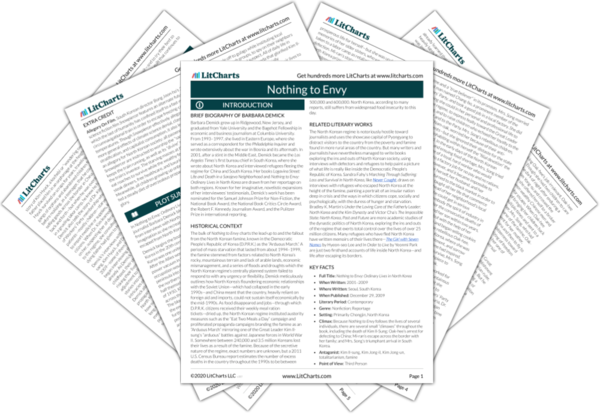The portrait Demick paints of Mrs. Song post-arrival in South Korea is a complex one. On the one hand, Mrs. Song has done all she can to move on—she keeps busy, she explores the world, and she participates in common contemporary cultural experiences. Still, Demick observes, Mrs. Song cannot fully escape the survivor’s guilt she feels. Demick suggests that Mrs. Song’s guilt over the deaths of her husband and her son may spur her to take fuller advantage of the new life in front of her. Though she can’t escape her past, she must continue moving forward.
